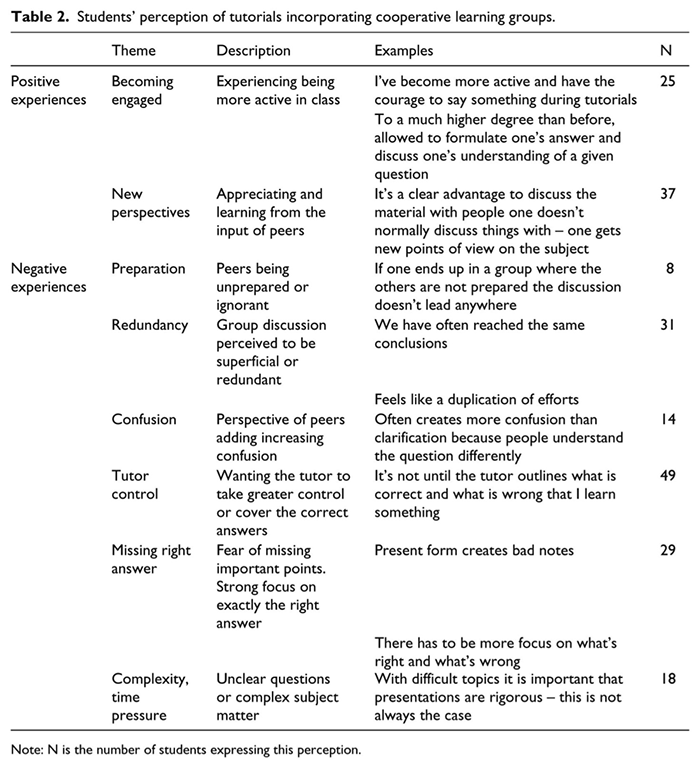The effect of cooperative learning on university students' learning approaches
Purpose/research question
The purpose of the project was to investigate the effect of cooperative learning on university students’ learning approaches and participation in classroom teaching.
Background
Teaching at university typically consists of different teaching activities such as student presentations, group work, plenary discussions, etc. In recent years, there has been a growing interest in the form of teaching referred to as cooperative learning. However, it is unclear how and to what extent cooperative learning supports deep learning approaches among university students.
Data/methodology
The survey is based on an intervention study in which, over a period of five weeks, cooperative learning was introduced in classroom teaching on a second-semester course on a Bachelor's degree programme. Data consisted of qualitative interviews with 12 students before and after the intervention, as well as questionnaire responses from 140 students who completed the questionnaire both before and after the intervention.
Discussion and perspectives
The statistical analyses showed that students were more likely to participate actively in discussions in sessions with cooperative learning. However, the intervention had no effect on the students' learning approaches.
The students had different positions on cooperative learning. At total of 45% stated that they had mainly had a negative experience, whereas 27% stated that they had mainly had a positive experience. Both positive and negative aspects of the experience of cooperative learning are shown in the table below.

Kilde: Herrmann, K. J. (2013). The impact of cooperative learning on student engagement: Results from an intervention. Active Learning in Higher Education, 14(3), 175-187